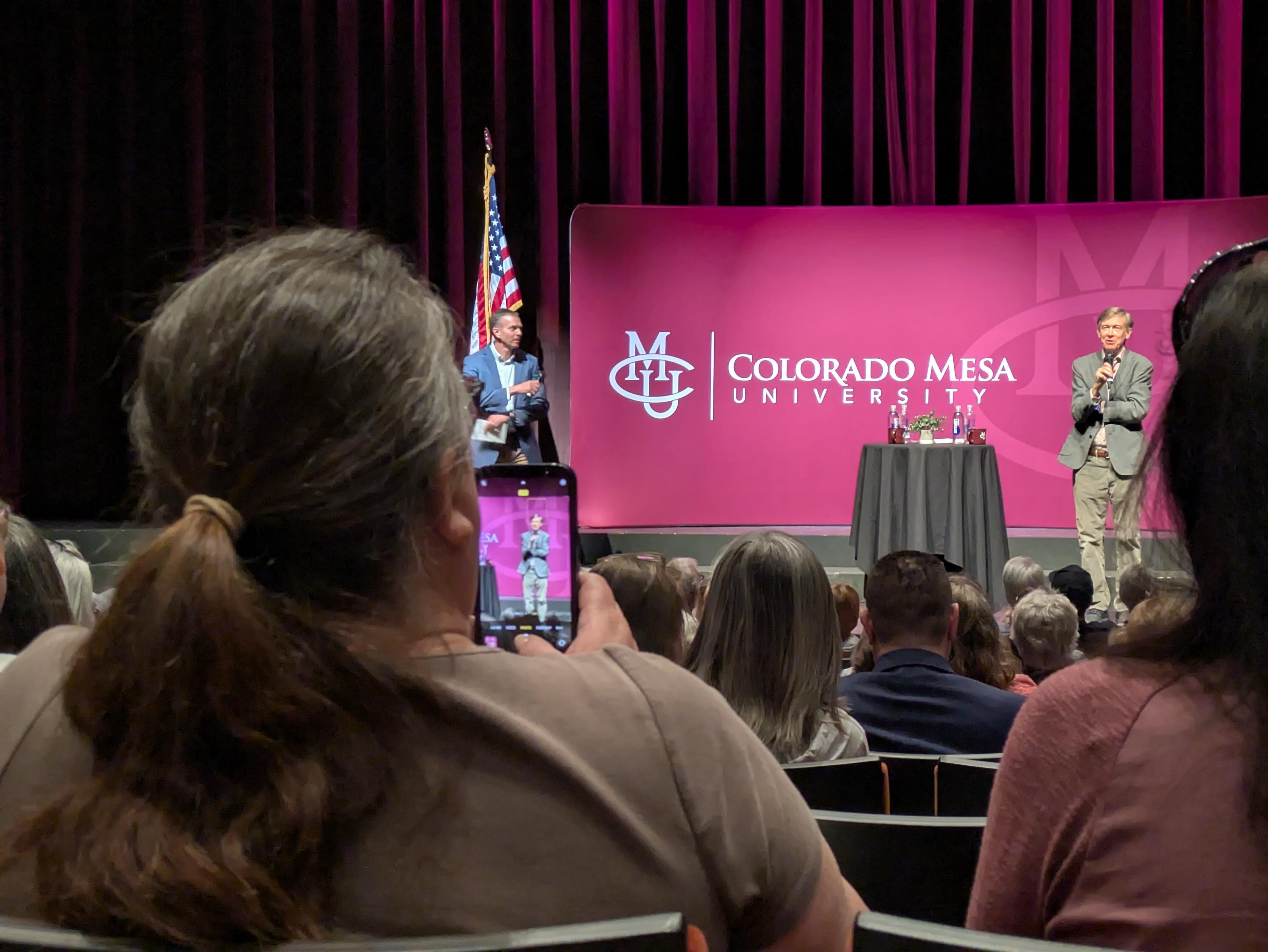
It’s looking like Coloradans have rejected an effort to enshrine school choice in the state Constitution.
As of 9:45 p.m., Amendment 80 was losing, with 52 percent opposed to 48 percent in support. This measure, which would have been the first of its kind in the nation, needs 55 percent of the vote to go into the state constitution.
It would have added language stating each “K-12 child has the right to school choice” and that “parents have the right to direct the education of their children.” It explicitly named charters, private schools, home schools and “future innovations in education” as options guaranteed by the state constitution.
Opponents celebrated the amendment’s apparent defeat.
“We find it really encouraging that people understand what this ballot measure was really trying to do, which was to create a pathway for a private school voucher system,” said Kevin Vick, president of the Colorado Education Association. “And we're also really encouraged that Colorado voters really value public schools and don't want to see that happen.”
A legislative analysis concluded that the measure would have no immediate impact on education in Colorado but could have opened the door to future changes to laws and funding for education.
Vick said the vagueness of the measure would have created a “legal quagmire,” which he said, in a worst-case scenario could have meant millions of dollars taken out of the public education system.
The battle over the measure drew millions of dollars from both sides and complaints against proponents alleging deceptive campaign practices. Amendment 80 was a nuanced ballot issue and difficult for many to understand.
When Denver voter Kyle Slusher first read Amendment 80, he thought giving children options would be a good thing.
“But if it is actually just creating a lane for private schools to take from public school funding, that's not obviously something that needs to be occurring,” he said.
After doing more research he changed his mind and voted “no.”
Advance Colorado, a conservative action committee that doesn’t disclose its donors, proposed the amendment. They argued Amendment 80 would protect families' right to choose the school — public, private or home school — that they deem is the best fit for their child. It was also backed by Ready Colorado, the Colorado Catholic Conference and the Colorado Association of Private Schools.
The measure was opposed by a coalition that included the Colorado Education Association, the Colorado PTA, the Christian Home Educators of Colorado, Colorado Democrats, Stand for Children, the ACLU Colorado and others.
School choice is popular in Colorado, with nearly 40 percent of public school students choosing a school outside their assigned neighborhood school. The 30-year-old school choice law has bipartisan support. Critics of the measure argued that the constitutional amendment wasn’t needed because laws giving Coloradans the right to attend the school of their choice for free already exist.
But proponents worried about what they said were increasing attempts to erode choice by local school boards, the state legislature and the State Board of Education. Proponents said Amendment 80 would be a backstop to any legislative attempt to reverse decades of bipartisan work to expand choice for students.
“There's been an attack on school choice over the last few years that has been ramping up and we are concerned about certain backstops going away like Gov. Jared Polis, for example,” said Brenda Dickhoner, president and CEO of Ready Colorado, a conservative education advocacy group. “The intent of amendment 80 was really to just cement those rights into our constitution so that they can't be rolled back.”
Proponents pointed to a legislative charter school proposal in the most recent session that would have tightened accountability on charter schools such as requiring them to report revenue and expenses related to marketing and recruiting students. Charter school proponents saw it as an attempt to give local school boards more power to close charter schools. The bill was killed at its first committee hearing.
Opening the door to public funding for private schools
Opponents of the measure argued the right to school choice, the right to choose a private school and the right to homeschool one’s children are already long-standing Colorado laws.
They argued that constitutionally guaranteeing a right to private school could usher in school vouchers — a public subsidy for private school tuition. They said research shows vouchers disproportionately harm Black and Latino students from low-income households and students with special needs while diverting resources away from public schools.
Voucher-funded private schools often operate without accountability for student outcomes and evidence shows they don’t increase academic achievement while exacerbating inequalities, opponents argued. In some states, they also mainly benefit students who are already enrolled in private schools. Schools that accept vouchers are also overwhelmingly religious and disproportionately serve white students.
Opponents also worried that Amendment 80, by giving parents the right to school choice, could allow parents to micromanage what’s taught in schools, ban books or sue schools for following nondiscrimination laws.
Proponents of Amendment 80 described the accusation that it would send money to private schools as a scare tactic. They said they had considered running a voucher ballot initiative and decided not to. They stated that the measure is simply enshrining the right to school choice in the constitution.
Big money race and deceptive texts
Money poured into the race from issue committees, both for and against Amendment 80. Public Schools Strong raised nearly $5 million to oppose the measure, including donations from teachers’ unions, and through Nov. 1 had spent $4.6 million. Supporting the measure was Colorado Dawn, which spent nearly $1.4 million between Oct. 12 and Nov. 1, according to the Secretary of State's 48-hour disclosure form. Another $200,000 was donated in support of the measure by Defend Colorado, a pro-business, anti-tax group, and Advance Colorado Action put in $15,000. Those groups don’t disclose their donors.
Colorado Dawn’s independent expenditure committee faced a campaign finance complaint for not giving a disclaimer on a text that went out to voters. It falsely claimed the state’s largest teacher’s union supported a ballot measure on school choice. The text featured an audio clip of Colorado Education Association president Kevin Vick stating that school choice has been law in Colorado for 30 years and has broad bipartisan support. That’s true but those were the reasons the CEA opposed Amendment 80. The text falsely used Vick’s words to get voters to vote for Amendment 80.
The same thing was done with texts using words from U.S. Sen. John Hickenlooper, who opposed the measure, and Gov. Jared Polis, who was neutral on the measure.








